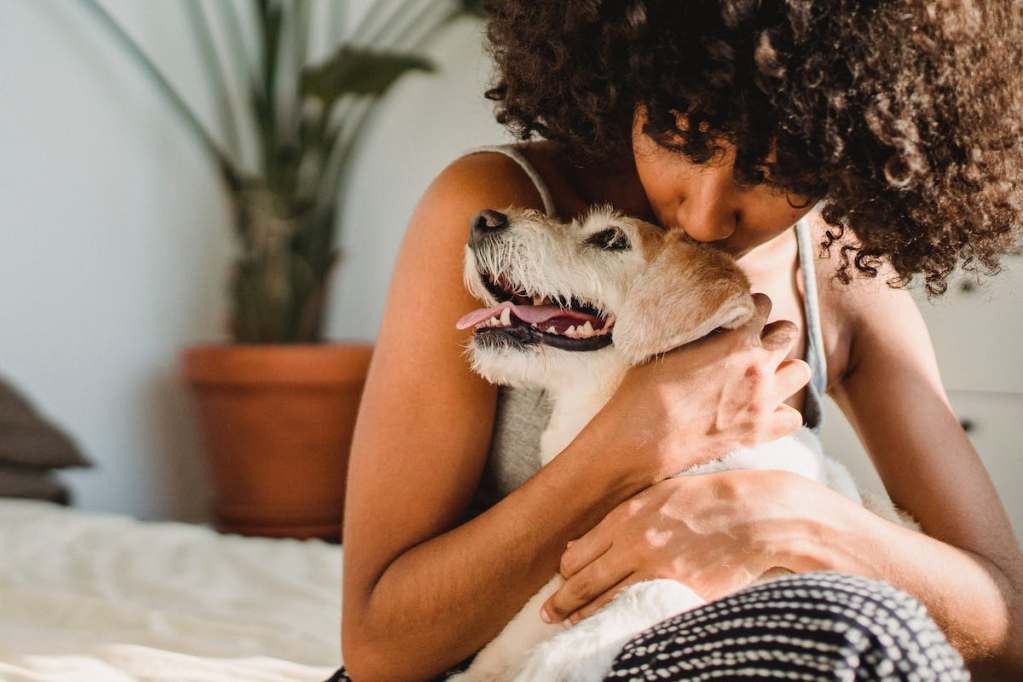
You hoped your dog “dug” their bed when you spent hours researching the top brands with the comfiest products. Maybe your pooch took to their bed immediately — success. Alternatively, perhaps they decided your bed was a better fit, and you chose to roll with the choice. Regardless of which option you two settled on, you may notice your pet has an interesting bedtime and naptime routine: digging into their beds.
The digging is usually accompanied by some walking around in circles, nosing at the bed or any blankets, and repeating until they finally settle down and enjoy some sweet slumber. Why do dogs dig on the bed, though?
The behavior is typical, but it’s always fun to understand precisely what’s happening in a dog’s head. Additionally, you may wonder if you should be concerned about bed digging or worried the pet will tear into the expensive bed you bought. We dug up some answers for you.

Why does my dog dig on the bed?
There are several reasons why dogs might dig on the bed, most of them completely harmless (phew). Reasons why your dog may adore digging into their bed include:
- Inheritance. Your dog may not have inherited millions of dollars from their ancestors. However, they did keep some of their relatives’ traits, including ones inherited from wild dogs. Before pups had the protection of their humans, they used to dig around before falling asleep to ensure the spot was safe. Today, wild dogs continue to practice this protective measure.
- Curiosity. Sometimes, your dog isn’t concerned about becoming someone else’s bedtime snack — they’re just innately curious. Some pups love uncovering toys and treats. Your pet might be checking under the covers to see if their favorite squeaky toy is around or if you left them a special treat.
- They want to get comfortable. Humans aren’t the only ones who fluff their pillows or toss and turn until they find the perfect position. Dogs do the same by digging. There’s a caveat to this reason, though. Sometimes, a dog has trouble getting comfortable because of an underlying issue, like pain. Call a vet if the digging is more intense, frequent, or longer lasting than usual or accompanied by other flags like trouble walking.
- Nesting. Pregnant, newly postpartum, or unspayed females may instinctively nest to keep their puppies safe and warm.
- They’re staking claim to the territory. Dogs can be territorial. Their paw pads have scent glands that help them mark their territory and let other animals (like your resident kitty) know to keep off their precious bed.
- Stress. Some dogs take their stress out compulsively, like chewing or excessively digging. If your dog’s schedule recently changed or you brought a new pet or baby home, they may cope by digging.
- Boredom. “Nothing else to do? Why not dig?” – Your dog, maybe.

How to stop a dog from digging into their bed
Real talk: You may be unable to, and there’s generally no reason to curb bed-digging sessions. The ordinarily harmless behavior is often engrained into a dog. However, if you’re concerned, try these steps:
- Call a vet. Your vet can help you rule out any underlying conditions and even give you tips for helping your dog cope with stress more productively.
- Keep your pet active. Lack of physical activity can lead to boredom and stress. Ensure your dog gets the right amount of exercise for their age, size, and breed. Your vet can help you determine how much your pet should exercise.
- Provide mental stimulation. Puzzle toys are among the ways to keep your pet’s mind working even if you can’t be around them 24/7.
- Redirect the dog. When the digging starts, try to redirect them by instructing the dog to “lie down” or with a toy (especially if you think the digging is out of boredom).
- Try a new bed. Perhaps your dog isn’t comfortable, or the bed’s material is irritating their skin. A new one might help.

Final thoughts
Dogs dig into their beds for several reasons. Their ancestors and wild dogs today dig into sleep spaces to protect themselves from predators. Even though your home may not have a predator in sight, a dog might have inherited this behavior from their relatives. A desire to get comfy is also a reason dogs dig. Sometimes, a dog will dig in their bed if they’re stressed or having trouble getting comfortable because of a medical condition. In these cases, the digging is often compulsive and accompanied by other symptoms, like vomiting or excess chewing.
Since digging into beds is innate in some dogs, you may struggle to stop the behavior. You might try redirecting the dog or ensuring they get plenty of exercise throughout the day. If these tips don’t work and there is no underlying condition present, you may have to accept the digging. Keep their nails trimmed to reduce tears, and buy a durable bed (and perhaps give them a gentle but firm boot from yours).



